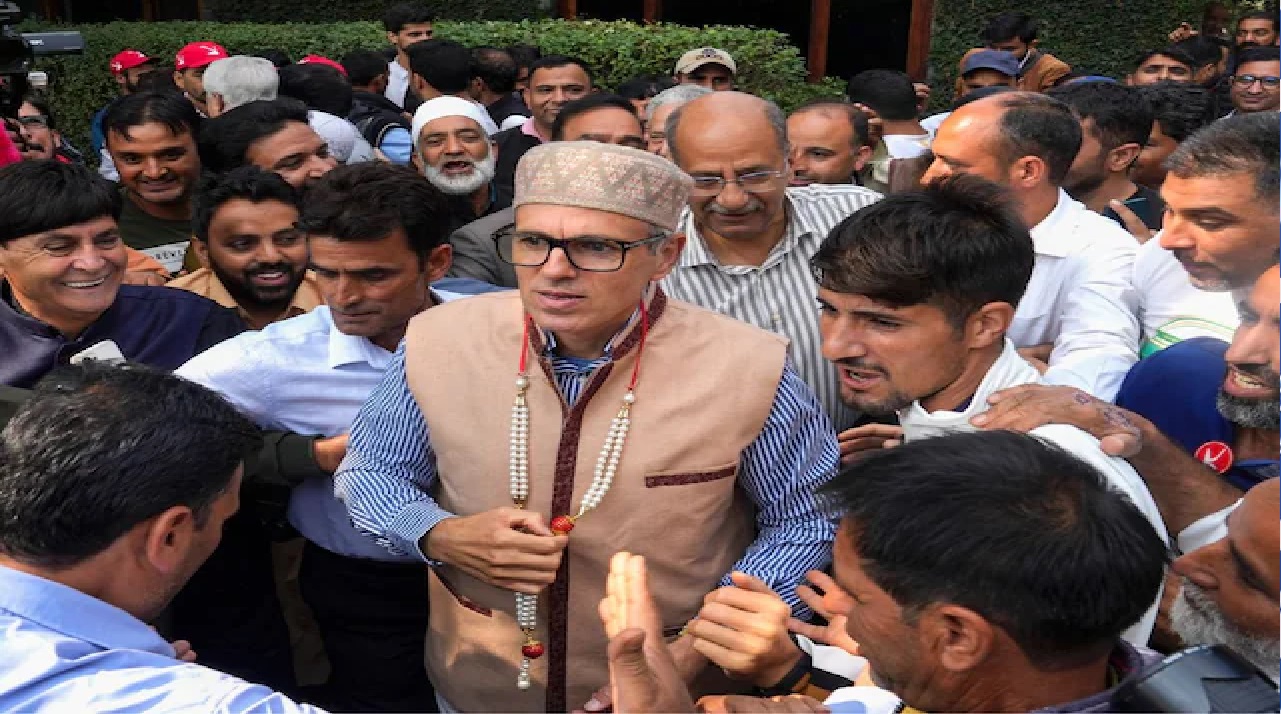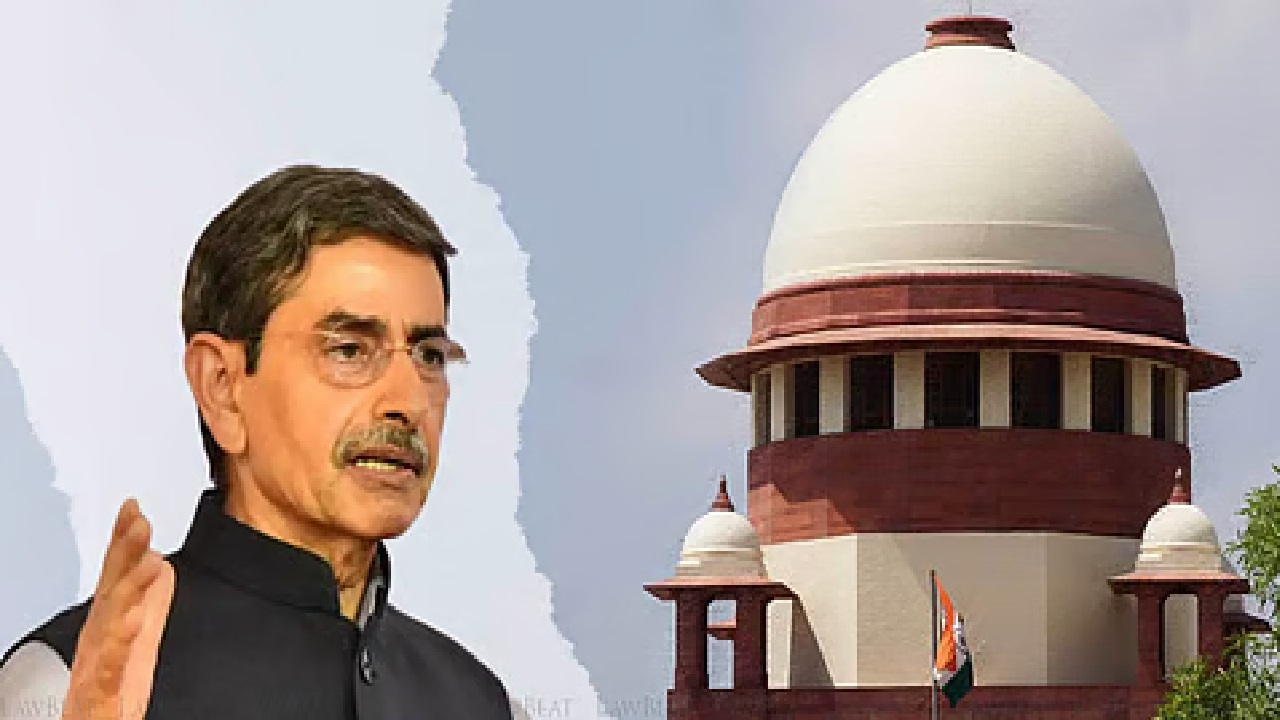J&K Assembly Election After Article 370 Abrogation
Jammu and Kashmir witnessed its first Assembly elections since the abrogation of Article 370, a historic political shift in the region. The National Conference (NC) emerged victorious, with Omar Abdullah set to take office as the first Chief Minister of the Union Territory. His party, along with allies, secured a clear mandate, but one notable decision stood out: the Congress, which allied with the NC, will not be part of the government, opting instead to offer external support.
Congress to Support NC Government from Outside
Despite their pre-election alliance, the Congress has decided not to join the government led by Omar Abdullah in Jammu and Kashmir, preferring to extend outside support. Sources revealed that this decision stemmed from the party’s high command, which was reportedly dissatisfied with its performance in the Union Territory (UT). While the local Congress unit had lobbied for a role in the government, the leadership in New Delhi took a different stance. The leadership’s reasoning was to focus on strengthening the Congress organization in J&K, rather than giving a few leaders ministerial posts.
Omar Abdullah to be Sworn in as J&K’s First Chief Minister in a Decade
The stage is set for Omar Abdullah’s swearing-in ceremony as the new Chief Minister of Jammu and Kashmir. He will be the first elected leader to hold this position since the UT was carved out following the abrogation of Article 370. The National Conference won 42 of the 90 seats in the recent elections, and Congress, its ally, secured six seats. Additional support has come from five independent MLAs and one from the Aam Aadmi Party (AAP), bolstering the numbers for Omar’s government.
Abdullah’s swearing-in marks a pivotal moment for the UT, as he emphasized during his post-election victory speech. He highlighted that his key goal is to work toward restoring Jammu and Kashmir’s statehood, which was revoked in 2019. He also expressed a desire to re-establish faith among the people, assuring them that their voices would now be heard after years of political uncertainty.
Senior Congress Leaders to Attend the Oath-Taking Ceremony
Even though the Congress will not have any ministerial roles, the party’s top brass is fully backing the National Conference-led government. Congress President Mallikarjun Kharge, Leader of the Opposition in Lok Sabha Rahul Gandhi, and party General Secretary Priyanka Gandhi Vadra are all set to attend the oath-taking ceremony in Srinagar. The event, scheduled at the Sher-i-Kashmir International Convention Centre (SKICC), will also see the participation of several other prominent leaders, including some from the INDIA bloc, a political coalition in which Congress plays a significant role.
Security Tightened Ahead of the Ceremony
As preparations for the oath-taking ceremony intensify, security around the venue has been significantly strengthened. Given the high-profile attendance, including Chief Ministers and political leaders from other states, authorities are taking no chances to ensure the event proceeds smoothly. Invitations have been extended to INDIA bloc leaders like Akhilesh Yadav (Samajwadi Party), Mamata Banerjee (West Bengal CM), and DMK leader MK Stalin. Additionally, Uddhav Thackeray and Sharad Pawar, Congress’ allies in Maharashtra, are expected to be present.
Omar Abdullah’s Vision for J&K’s Future
Omar Abdullah, a seasoned leader in Jammu and Kashmir’s political landscape, has returned to power with strong electoral backing. Having contested and won in both Budgam and Ganderbal constituencies, Abdullah’s leadership will be crucial in navigating the complex challenges facing the Union Territory.
He has already outlined some of his priorities, the most significant being the restoration of Jammu and Kashmir’s statehood. Abdullah has expressed his determination to “give people hope” and assured the public that his government will focus on addressing the issues that have long been neglected.
Congress’ Strategy: Strengthening the Party Base
The Congress, despite being an ally of the NC, has strategically chosen to remain outside the government. According to sources, the party declined the offer of even a single ministerial berth. Instead, the leadership has focused on rebuilding its organizational structure in Jammu and Kashmir. This move, though surprising to some, is seen as part of a broader plan to prepare the party for future elections and build grassroots support in the region.
The Congress has appointed Ghulam Ahmad Mir as its Legislature Party leader in Jammu and Kashmir, signalling a renewed focus on internal party dynamics. The decision to stay out of the government while still offering external support is viewed as a way to maintain leverage and pressure on the NC while working on strengthening the party’s influence in the UT.
As Omar Abdullah takes the helm as Chief Minister, the political landscape of Jammu and Kashmir is set for significant changes. With the Congress choosing to support from the outside, the dynamics within the UT’s government will be interesting to watch. Abdullah’s focus on restoring statehood and giving voice to the people will likely define the early days of his administration, as J&K embarks on a new chapter in its political journey.
(With Inputs from agencies)








